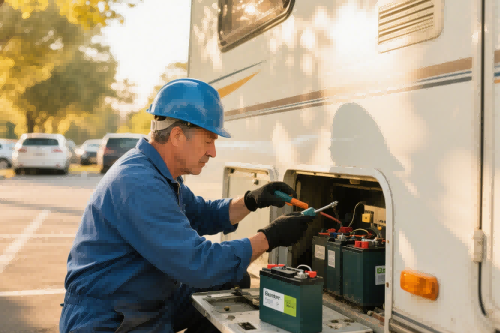RV Lithium Battery Upgrade: Simpler & More Affordable Than You Think

I want to talk about upgrading your RV to lithium batteries. I know that the recent drop in lithium battery prices has made this upgrade a much more realistic and affordable option for many of you who thought it was out of reach. I want to clear up some confusion.
Let's start with the converter, which is honestly only an issue if you frequently attach your rig to shore power for long periods. It's not a big deal for weekend campers. If you have a fairly recent RV, your stock converter probably won't hurt the battery by charging it with the lead-acid profile while you're hooked up. I've been doing it for two years now without problems. But for a perfect charge, a great alternative is to just buy a separate 20-amp lithium charger from your battery’s company. Simply plug it in and charge up before you leave.
Many weekend warriors who avoid expensive campgrounds can just swap out their old battery for a new LiFePO4 and be perfectly fine. Think about how much you really use. For my trips, I can easily go ten days on a single 100Ah lithium battery, which shows you just how much power they hold. I actually bought two. Now that they are cheap enough, I can charge them both before leaving, hook one up for my trip, and just keep the other as a reliable backup. These batteries also last an incredibly long time. With some rated for 4000 charge cycles, it would take almost eleven years of daily, full-cycle use to finally wear one out.
Now, let's talk about your battery monitor. Your old voltage-based monitor isn't accurate for lithium, so you can either go without one, use a battery with Bluetooth, or install a special shunt-based monitor. The alternator is another key point. I'm glad this tip on alternator charging is helpful because for drivable RVs, the high charging current can stress your system, so I really recommend a DC-to-DC charger to protect it. Towable trailers are usually fine.
I have a nicer rig and I use solar, but I know many of you don't use your RVs enough to justify the cost, and that is perfectly okay. Just remember one critical thing. You absolutely should not charge these batteries in below-freezing weather, so I strongly suggest getting one with built-in low-temperature protection.

